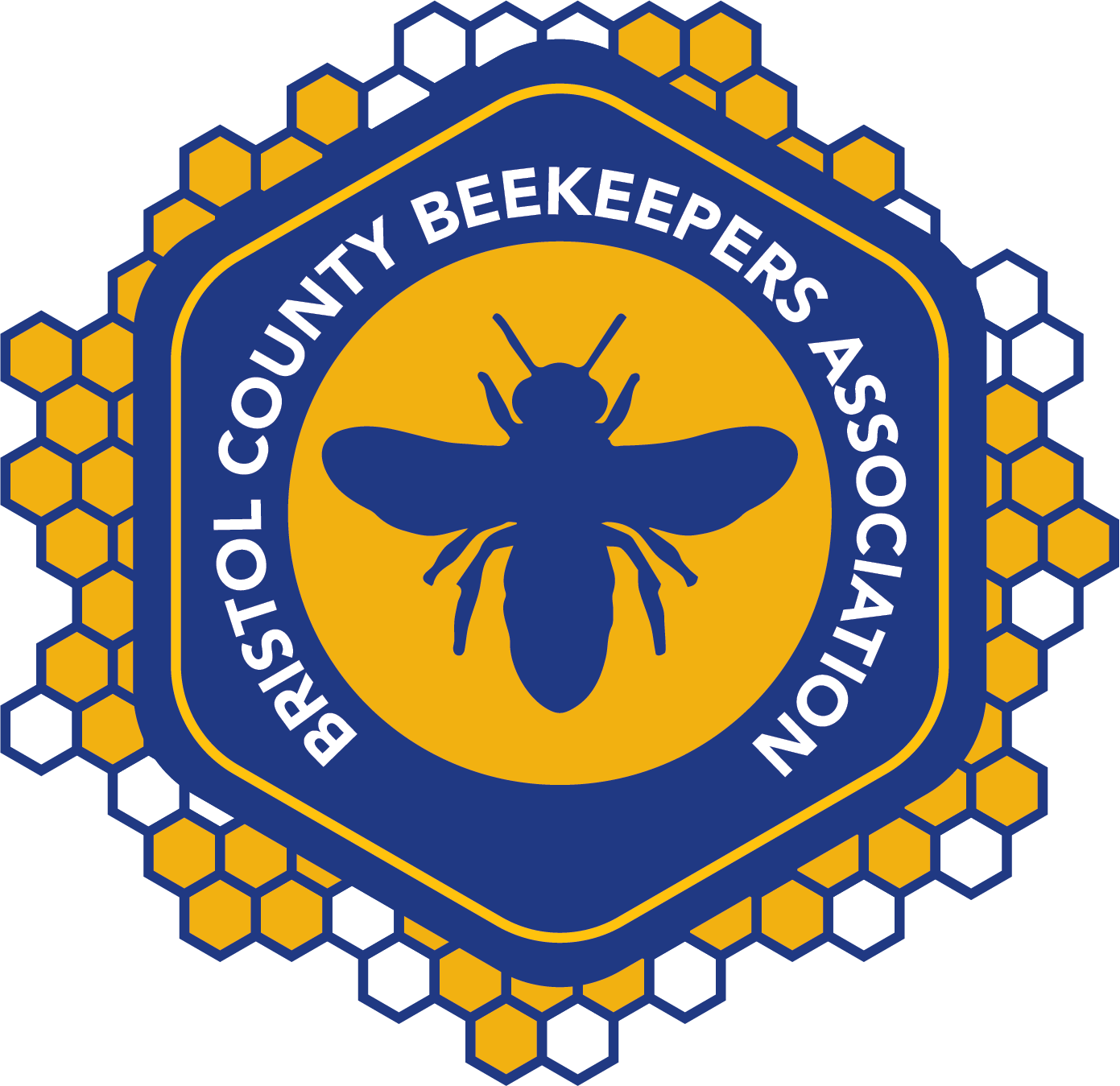bristol county beekeepers associationWe Collaborate & Educate to Preserve the Future of Honeybees | Member Sign In |
Resources for Beekeepers
Download this Beekeeping Calendar for the Northeast. (Cornell University, Master Beekeeping Program)
BrCBA Buzz Line
(View the Buzz Line Archive)
Buzz Line is a monthly, hour-long, open panel with experienced beekeepers ready to answer your questions and share insights. Gain practical advice on hive management, bee health, and more while connecting with fellow beekeepers. Check the Events page for the next Buzz Line.
Local Resources and Membership Opportunities:
Massachusetts Beekeepers Association: Local news, seasonal newsletter, in-person education opportunities
Eastern Apicultural Society: Largest non-commercial beekeeping organization in the US, annual conference, newsletters
Honeybee Health Coalition: Varroa management, IPM, best management practices, mite treatment decision support tool
UMass Ag: Bee school info, workshops, hive management
MDAR Apiary Program: Regulations and outreach pertaining to beekeeping, state inspections, honeybee health survey, state apiaries, pollinator protection plan
Cornell CALS: Beekeepers courses and certifications, managing pests and diseases, overwintering
American Beekeeping Federation: Beekeeping support tools including online learning opportunities, legislative updates, Honey Defense Fund, annual conference and tradeshow
Locally Sold Native Plants:
Butterfly Effect Farm (Westport, MA)
Tree Talk Natives (Rochester, MA)
Prickly Ed's (Barrington, RI)Local and Online Equipment Suppliers:
Wood’s Beekeeping Supply and Academy, Lincoln RI
HillCo ( a note from Ed L.: "A Ma & Pa Company in Illinois. Excellent workmanship in the products they make. Note; There are 2 HillCo.(s) that sell Bee Equipment. This is the one you want!")
Bay State Pet and Garden Supply, Taunton, MABarkers Beehives and Supplies, Oxford, MA
Maxant Honey Processing Equipment, Ayer, MA
Beekeepers Warehouse, Woburn, MA
Dadant, Hamilton, IL
Hudson Valley Bee Supply , Kingston, NY
Public Learning Opportunities:
The MDAR Apiary Program Team offers a series of virtual (Zoom) and in-person (State Apiaries) continuing education programs each year with a focus on beekeeping and honey bee health. Join MDAR at Bristol Aggie for hive openings and informational talks. Join the Northeast Honey Bee Update: Lunch and Learn Series. Find the information on the MDAR Apiaries Page
Cornell University Master Beekeepers Certification: Club members may be eligible for a discount on this course. Contact our club president for more information.
The South Western Ohio Beekeepers Association (SWOBA) invites the public to attend (online) their club lectures on a variety of topics aimed to increase the awareness of honeybees and their importance to our environment and food supply. View the Schedule
Helpful Websites:
The Bee MD - A diagnostic application for use in the field to diagnose honey bee health problems
MDAR Apiary Program Additional Resources - Dozens of resources for honeybee keepers
Video Tutorials (YouTube) and Online Beekeeping Communities:
University of Guelph - Various relevant “how-to” videos including making splits, swarm and robbing prevention, feeding, harvesting honey, and many more
Beesource: Online forum for beekeeping advice, discussion and information
Beemaster: Online forum for all topics related to beekeeping
Podcasts:
Two Bees in a Podcast - UF/IFAS honeybee research extension lab - diverse subjects including current research, monthly management, urban and commercial beekeeping, disease management
Beekeeping Today - Hosts Jeff Ott and Becky Masterman bring you conversations with researchers, beekeepers and industry leaders to help you become a more informed and knowledgeable beekeeper.Books and Magazines:
The Beekeeper’s Handbook by Sammataro and Avitabile, 4th edition (Bee School textbook)
Beekeeping for Dummies by Howland Blackiston
The Backyard Beekeeper by Kim Flottum
Honeybee Democracy by Thomas D. Seeley
What a Bee Knows by Stephen L. Buchmann
The Hive and the Honeybee by Dadant & SonsThe ABC and XYZ of Bee Culture by A. I. Root
American Bee Journal
Bee Culture Magazine
Expert - Recommended Articles:
Finding and Retaining Varroa-Resistant Bees
Combining Pest Treatments May Be Key to Helping Honey Bees Survive Winter
Other Resources We Have Gathered Along the Way
11/19/24:
Dr. Kim Skyrm presents: The Biology and Behavior of the Tropilaelaeps (Tropi) Mite
View more info about Tropi Mites
Follow "Project Apis M" on YouTube
9/7/22 WINTER MANAGEMENT
William Hesbach, EAS Master Beekeeper:
 READ: Winter Management by William Hesbach.
READ: Winter Management by William Hesbach.
"Evolution has provided honey bees with an extraordinary ability to thermoregulate and survive in a cold climate"
Published in Bee Culture, The Magazine of American Beekeeping
 WATCH: Winter Management, Using Insulation & Ventilation in Temperate Climates.
WATCH: Winter Management, Using Insulation & Ventilation in Temperate Climates.
The discussion includes moisture's role during winter and how insulation can help promote a more natural balance inside a wintering colony. Learn how bees control the internal hive temperature using thermoregulation and what effect that has on the colony. Bill discusses convection flows inside the hive as a precursor to understanding ventilation. He introduces the concept of condensing colony versus the more common practice of adding ventilation.
You will better understand what role ventilation plays in a natural hive environment, where bees control all hive gases.
